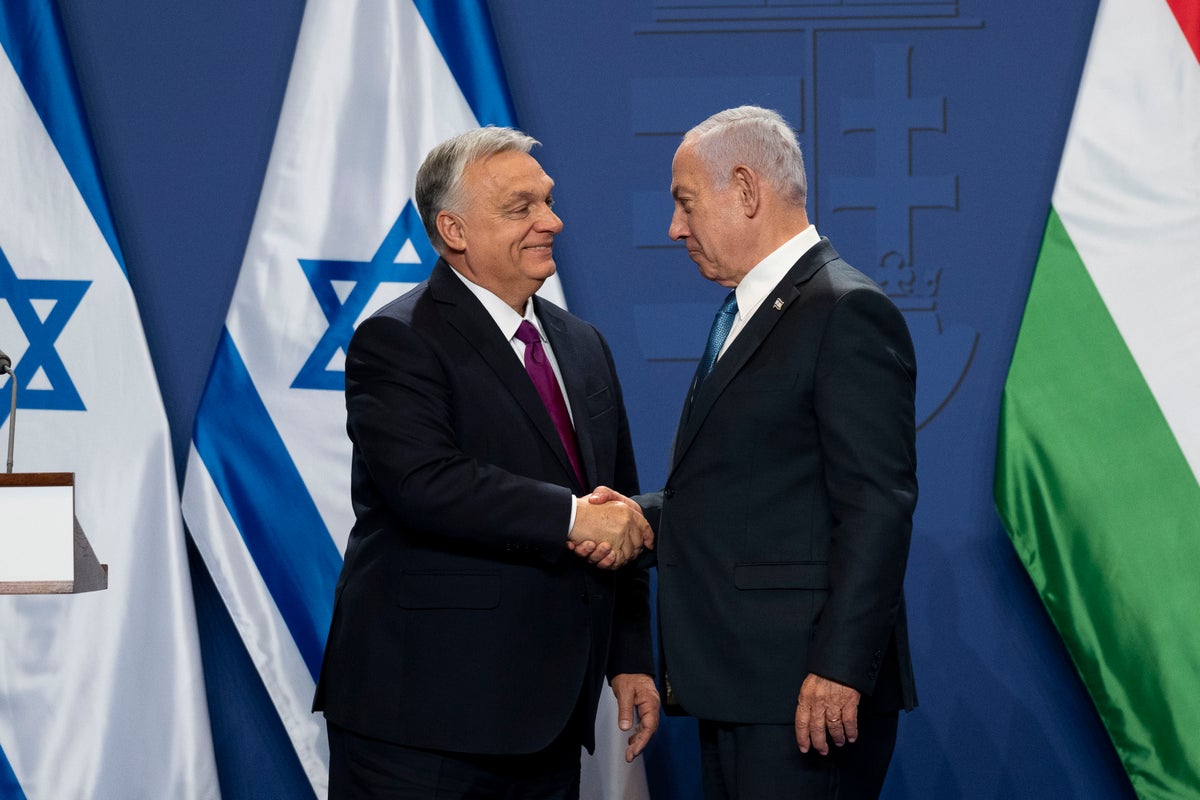From reproductive rights to climate change to Big Tech, The Independent is on the ground when the story is developing. Whether it’s investigating the financials of Elon Musk’s pro-Trump PAC or producing our latest documentary, ‘The A Word’, which shines a light on the American women fighting for reproductive rights, we know how important it is to parse out the facts from the messaging.
At such a critical moment in US history, we need reporters on the ground. Your donation allows us to keep sending journalists to speak to both sides of the story.
The Independent is trusted by Americans across the entire political spectrum. And unlike many other quality news outlets, we choose not to lock Americans out of our reporting and analysis with paywalls. We believe quality journalism should be available to everyone, paid for by those who can afford it.
Your support makes all the difference.
Read more
A panel of judges at the International Criminal Court reported Hungary to the court’s oversight organization for failing to arrest Israeli Prime Minister Benjamin Netanyahu when he visited Budapest in April, saying the move undercut the court’s ability to bring suspects to justice.
The Israeli leader received a red carpet welcome from Hungarian Prime Minister Viktor Orbán during a state visit, in defiance of an ICC arrest warrant. Netanyahu and his former Defense Minister Yoav Gallant are accused of crimes against humanity in connection with the war in Gaza.
Israel is not a member of the court and staunchly rejects the charges.
In a filing released late Thursday, the three-judge panel wrote that “the obligation to cooperate was sufficiently clear to Hungary” and the failure to arrest Netanyahu “severely undermines the Court’s ability to carry out its mandate.”
The ICC has no police force and relies on countries around the world to execute arrest warrants.
The court’s oversight body, the Assembly of States Parties has limited powers to sanction Hungary. It will consider the next steps during its annual meeting in December.
The Hungarian leader, regarded by critics as an autocrat and the EU’s most intransigent spoiler in the bloc’s decision-making, has defended his decision to not arrest Netanyahu. During the visit, Orbán said his country’s commitment to the ICC was “ half-hearted ” and began the process to withdraw Hungary from the court.
Orbán signed the Rome Statute, the treaty which created the court, in 2001 during his first term as prime minister.
The court dismissed arguments from Hungary that Parliament never incorporated the court’s statute into Hungarian law, writing “it was Hungary’s responsibility to ensure that such legislation was in place.”
The decision comes as Gaza’s population of more than 2 million Palestinians is in a catastrophic humanitarian crisis, now relying largely on the limited aid allowed into the territory. Netanyahu and Gallant are accused of using “starvation as a method of warfare” by restricting humanitarian aid, and of intentionally targeting civilians in Israel’s campaign against Hamas in Gaza.
It’s the third time in the past year that the court has investigated one of its member states for failing to arrest suspects. In February, judges asked Italy to explain why the country sent a Libyan man, suspected of torture and murder, home on an Italian military aircraft rather than handing him over to the court.
In October, judges reported Mongolia to the court’s oversight organization for failing to arrest Russian President Vladimir Putin when he visited the Asian nation.
